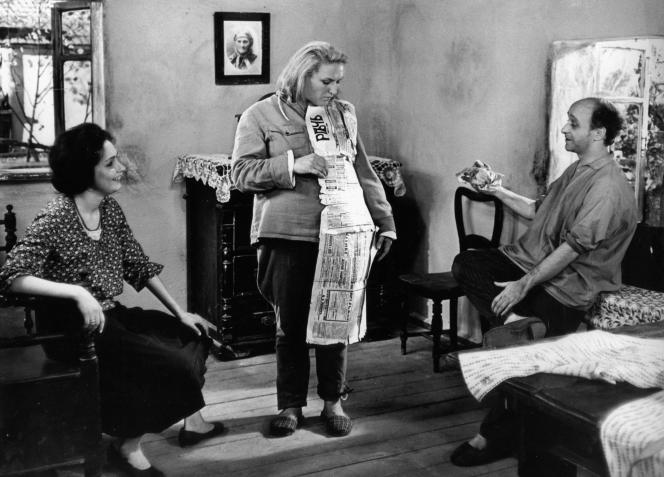Find all the episodes of the series “A film and then nothing” here.
There is nothing else to do when one offers, in the heart of summer, a period conducive to relaxation, a story as sad and infamous as that of Alexander Askoldov. His entry into existence is already a matter of loss and pain, the worst a child can experience. Born in 1932, he grew up in kyiv. He sees his father, yet a former officer in the Red Army, declared “enemy of the people”, arrested in 1937 by the NKVD (the Soviet political police), then shot. His mother will soon follow her husband to prison. Having taken refuge for a time with Jewish friends of his parents who took him in before entrusting him to the care of his grandmother, he could never show his gratitude to this family, which was assassinated in 1941 in Babi Yar (Ukraine). From this experience, he will draw, a quarter of a century later, The Commissioner (1967), a masterpiece, his one and only film. And for good reason, since it will earn him his final obliteration as a filmmaker.
The death of Joseph Stalin – a privilege he shares with quite a few of his fellow citizens – marks, in 1953, a clearing in the sky charged with his earthly existence. His studies in literature led him to take care of the archives of the writer Mikhail Bulgakov, another Russian martyr of artistic freedom, then to land a position as adviser to the Ministry of Culture, where he contributed in particular to making this jewel of the soviet thaw cinema that is I’m twenty years old (1965), by Marlen Khoutsiev. He himself left the spheres of power when Nikita Khrushchev whistled the end of recess, joined the National Institute of Cinematography, known by the Russian acronym VGIK, and made his graduation film there, The Commissionerfruit of his childhood memories and adaptation of a short story by the writer Vassili Grossman (In the town of Berdichev1934), another major victim of Soviet censorship.
History leads, shortly after the Bolshevik revolution, a column of the Red Army to conquer from the counter-revolutionary forces a Jewish village in Ukraine, a land pogromized excessively, first and foremost by nationalists and other Ukrainian Cossacks who celebrate through this ethnic cleansing their aspiration to independence. At the political head of the Red Battalion, Klavdia Vavilova, a blonde mirrored wardrobe and political commissar of the battalion, with whom no one undertakes to joke. Pregnant by a stranger, she must however find a temporary haven here, in the midst of the raging war. He is assigned the accommodation of Efim Magazanik, a modest craftsman and father of a large family, whose brother has just been beheaded by the infamous Ataman Struk.
You have 56.51% of this article left to read. The following is for subscribers only.
